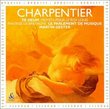| All Artists: Massa Bouchafa Title: Tamazghra Members Wishing: 0 Total Copies: 0 Label: Aladin Release Date: 2/16/1999 Genre: International Music Styles: Middle East, Arabic Number of Discs: 1 SwapaCD Credits: 1 UPCs: 341544021435, 3415440214356, 3661318011569 |
Search - Massa Bouchafa :: Tamazghra
CD DetailsSimilar CDs
|
CD ReviewsBerber Women Guard Suppressed Tamazighth Language,No.Africa Mitch Ritter | Po' Land, Or-Wa USA | 10/04/2001 (4 out of 5 stars) "Tamazghra means Land of the Free Peoples in North Africa's suppressed native language of Tamazighth, still spoken by some 30-40 million people from the Sahara to the Mediterranean coast, east as far as Egypt and west as far as Mauritania, Occupied Western Sahara, and Morocco. Massa Bouchafa raises a joyful noise, leading off this CD with a womens' chorale that blends serene yet assured vocal harmonies with Amazigh crafted metal drums historically renowned throughout North Africa on "Inevgawen." There is some subtle use of orchestrations and small combo settings displaying more of the traditional openness of Amazigh (singular of Berber) artists and Tamazghraphone society to culturally interact with all Mediterranean cultures (as opposed to the Arabophone artists of North Africa, who until recent rai experimentation and marketing were more insular and closed-off despite their presence in the midst of classical Mediterranean arts). Leading Amazigh recording artists such as Idir, Djur Djura, Mugar, the band Tayfa and Kabylian bard Ait Menguellet have also been exploring the Barbary Coast of Africa's shared Celtic roots in exiled cultural expression (see the LA KABYLIA AU COEUR compilation CD on VIRGIN) in Spain, Basquelands, Catalonia, Brittany-France, Ireland, England, Wales, and Scotland.Presented here titled "Inebgawen" it is characteristic of Imazighen (plural of Berbers) from Algeria's wildly creative Kabylia region to pronounce the letter b's sound as a v sound. One more way to differentiate themselves from the Arabizers (there is no letter or sound for v in Arabic, language of the invader) who hijacked the Algerian revolution from 1955-62 that saw the Amazigh forces leading the combat that expelled the longtime French colonial occupiers. The French government and industrial and financial sectors have along with other western corporate-backed governments such as the U.S., UK, and Dutch supported since 1962 Islamo-Pan Arabist and World Bank-led corruption of the Algerian Generals for easy access to North Africa's mammoth reserves of oil, natural gas, and uranium. The Amazigh or Berber social structure has traditionally been led by a loose affiliation of democratically chosen village councils known as the Arrouche, with women playing prominent roles in political, spiritual, and cultural leadership. "Inevgawen" may yet start a new World Music craze as it is also featured on the essential Amazigh (Berber) North African compilation CD entitled KABYLIE MOUV' (Kabylie Movement) imported from France on Atoll Records, as the Algerian authorities along with the Arab regimes across North Africa either outlaw or censor all contemporary expression in the native Tamazighth language. Morocco, 60-70% ethnic Amazigh (Berber) now blacklists all but Arabic names from the national registry of newborns, further attacking the indigenous Amazigh identity. Massa Bouchafa's music circulates widely in Morocco as well, if underground to avoid running into trouble with the Royal Maroc Ministry of Arabization.While this CD is named TAMAZGHRA, as the natives refer to North Africa, most of the world knows these Amazigh homelands as El Maghreb, which means The Western Place in Arabic. This commonly used name was given the region when Arab armies invaded North Africa in the 7th Century, and were first defeated at Al Jem, the Roman ruins in Tunisia, by Judeo-Amazigh (Berber) priestess-warrior Kahina Dahyan. Kahina's two sons survived the eventual defeat that killed their mother, and were recruited by the conquering Arabo-Islamist army as Generals in the newly formed Moorish forces that later took Spain under the command of another Amazigh General named Tareq. Massa Bouchafa still takes her cultural cues and musical inspiration as much from western harmonic constructs as from her native Hammitic African traditions. Amazing how the suppression of Amazigh identity, language and culture by the post-colonial Arab Facade has spurred a revival if not renaissance in Tamazighth arts and music, with more children in exile learning the mother tongue through online courses and in European and North American schools. Massa Bouchafa remains based in war torn Algeria, and one hopes it will soon be safe for her to return to the concert stage in her native land without fear of reprisal from either the GIA (Islamic militias that insist on women being veiled and not raising a voice in public places, much less a native voice in a language other than Arabic) or the so-called Secular regime of the Generals who insist on Arabizing the majority Amazigh population."
|





